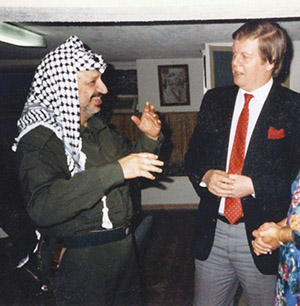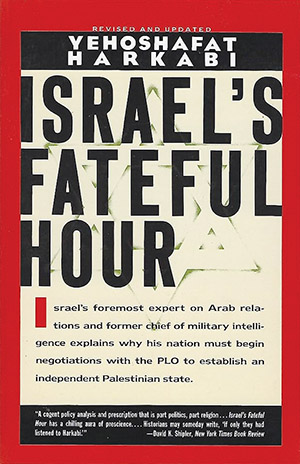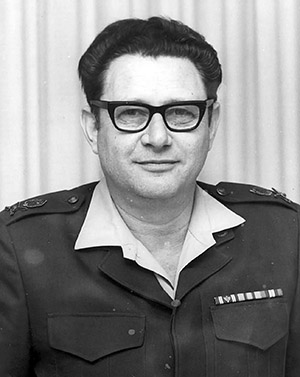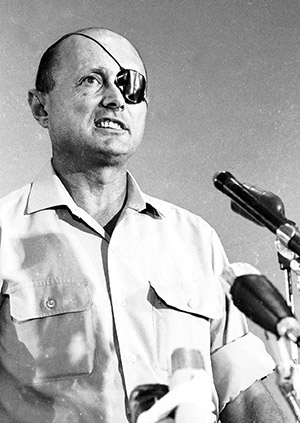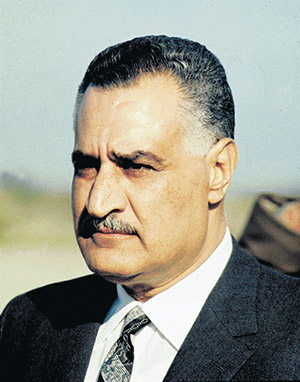From New Dawn Special Issue Vol 17 No 4 (Aug 2023)
Waiting for the Apocalypse, the Prologue to Volume One of my book Zionism: The Real Enemy of the Jews, ends with a quote from (retired) Major General Shlomo Gazit, the best and the brightest of Israel’s Directors of Military Intelligence.
Over coffee one morning in early 1980, I took a deep, Gentile breath and said to him: “Shlomo, I’ve come to the conclusion that it’s all a myth. Israel’s existence has never, ever, been in danger.” Through a sad smile he replied: “Alan, the trouble with us Israelis is that we’ve become the victims of our own propaganda.”
In this article for New Dawn I’m going to put some flesh on the bone of that statement to explain in tight and possibly inadequate summary how the Zionist (not Jewish) state of Israel became its own worst enemy and a threat not only to the peace of the region and the world, but also to the best interests of Jews everywhere and the moral integrity of Judaism itself.
The key to understanding is knowledge of the difference between Judaism and Zionism.
Judaism is the religion of Jews, not “the” Jews because not all Jews are religious. Like Christianity and Islam, Judaism has at its core a set of moral values and ethical principles. As Nazi holocaust survivor Dr Hajo Meyer states in his 2007 book, An Ethical Tradition Betrayed: The End of Judaism, these values and principles put Jews “at the forefront of humanitarian and socially constructive endeavours” throughout much of history. (A sort of light unto nations, I add, until Zionism came along).

Even the shortest definition of Zionism must begin by recognising that there is what might be called spiritual Zionism and political Zionism. In the sense that they look to Jerusalem as their spiritual capital or centre, all Jews who are religious could regard themselves as spiritual Zionists. The Zionism of my book’s title and substance (and this article) is political Zionism, hereafter Zionism.
It is Jewish nationalism in the form of a sectarian, colonial enterprise which, in the process of creating in the Arab heartland a state for some Jews, mainly by terrorism and ethnic cleansing, made a mockery of, and demonstrated contempt for, Judaism’s moral values and ethical principles.
Judaism insists that the return of Jews to biblical Israel must await the Second Coming of the Messiah. Zionism, when it declared itself to be in existence, in Switzerland in 1897, said, in effect: “We can’t wait for Him. Zionism is the Messiah.” As Israel’s longest-serving Director of Military Intelligence, Yehoshafat Harkabi, noted in his seminal book Israel’s Fateful Hour (published in English in 1986), the return of Jews to the land of the ancient Hebrews by the efforts of man and thus Zionism was “proscribed” by Judaism. Very few Jews today are aware of this, but it is a fact.
Judaism & Political Zionism are Total Opposites
Supporters of Israel right or wrong conflate Judaism and Zionism because the assertion that they are one and the same enables them to claim that criticism of the Zionist state of Israel is a manifestation of anti-Semitism. Often, almost always these days, the accusation that criticism of Israel is anti-Semitic is a form of blackmail intended to silence criticism of, and suppress informed and honest debate about, the Zionist state and its policies. The reality is that Judaism and political Zionism are total opposites, and knowledge of the difference is the key to understanding two things:
1) Why it is perfectly possible, with good reason on the basis of all the facts, to be passionately anti-Zionist – opposed to Zionism’s colonial enterprise – without being, in any way, shape or form anti-Semitic. (It’s worth noting that the most perceptive and devastating critics of Zionism were and are Jews).
2) Why it is wrong to blame all Jews everywhere for the crimes of the hardcore Zionist few in Palestine that became little Israel and then Greater Israel.
Most Arabs and other Muslims have always known the difference between Judaism and Zionism. And it can be said without fear of contradiction that throughout much of their history, Arabs and other Muslims were the best protectors of Jews in need of sanctuary. It was Zionism’s colonial enterprise that poisoned the relationship, but not to the point, yet, at which most Arabs and other Muslims blame all Jews for Zionism’s crimes.
Zionism’s Big Lies
Adolf Hitler best defined “The Big Lie.” It was, he wrote in Mein Kampf, “a lie so enormous that people would not believe that others could have the impudence to distort the truth so infamously.” Zionism is the master of this art. Its narrative about the making and sustaining of conflict in and over Palestine – the narrative upon which the first and still existing draft of Judeo-Christian history is constructed – is one big propaganda lie after another.
Zionism’s first big lie was in its recruiting slogan which described Palestine as “A land without people for a people without land.” In reality, there were hundreds of Arab settlements in Palestine. And Haifa, Gaza, Jaffa, Nablus, Acre, Jericho, Ramle, Hebron and Nazareth were flourishing towns. And Jerusalem was a flourishing city. As many a traveller had noted, the hills of Palestine were painstakingly terraced, and irrigation ditches crisscrossed the most fertile part of the land. The products of the citrus orchards and olive groves were known throughout the world. Cottage industries were much in evidence. It’s true that Palestine was underdeveloped, as was all of the Arab world and much of the whole world; but uninhabited, uncultivated and uncivilised Palestine was not. Except in Zionist mythology.
It also has to be said that most if not all of the Jews who went to Palestine in answer to Zionism’s call had no biological connection to the ancient Hebrews. The incoming Zionist Jews were mainly foreign nationals of many lands, descended from those who became Jewish by conversion to Judaism centuries after the fall of the ancient Jewish kingdom of Israel and what is called the “dispersal” into “oblivion” of its people. The notion that there were, are, two entire peoples with an equally valid claim to the same land is historical nonsense. The relatively few Jews with a valid claim were the descendants of those who stayed in Palestine through everything. They numbered only a few thousand at the time of Zionism’s birth; they regarded themselves as Palestinians; and they were fiercely opposed to Zionism’s colonial enterprise – because they rightly feared that it would make them as well as the incoming, alien Zionist Jews enemies of the Arabs among whom they had lived in peace and security.
According to the first and still existing draft of Judeo-Christian history, Israel was given its birth certificate and thus legitimacy by the UN Partition Resolution of 29 November 1947. This, too, is nonsense.
In the first place, the UN without the consent of the majority of the people of Palestine, did not have the right to decide to partition Palestine or assign any part of its territory to a minority of alien immigrants in order for them to establish a state of their own.
Despite that, by the narrowest of margins, and only after a rigged vote, the UN General Assembly did pass a resolution to partition Palestine and create two states, one Arab, one Jewish, with Jerusalem not part of either. It was a formula for a massive injustice. Some 56.4 per cent of Palestine was to be given for a Jewish state to a people (many of them recently arrived alien immigrants) who constituted 33 per cent of the population and owned 5.57 per cent of the land.
But the General Assembly resolution was only a proposal – meaning that it could have no effect and would not become policy or confer even spurious legitimacy unless approved by the Security Council.
The truth is that the General Assembly’s partition proposal never went to the Security Council for consideration! Why not? Because the US knew that, if approved, it could only be implemented by force, and US President Truman was not prepared to use force to partition Palestine.
So the partition plan was vitiated (became invalid) and the question of what the hell to do about Palestine – after Britain had been driven out by Zionist terrorism and washed its hands of the problem – was taken back to the General Assembly for more discussion. The option favoured and proposed by the US was temporary UN Trusteeship. It was while the General Assembly was debating what to do that Israel unilaterally declared itself to be in existence – actually in defiance of the will of the organised international community, including the Truman administration.
The truth of the time was that the Zionist state had no right to exist and, more to the point, could have no right to exist unless… Unless it was recognised and legitimised by those who were dispossessed of their land and their rights during the creation of the Zionist state. In international law, only the Palestinians could give Israel the legitimacy it craved. And that legitimacy was the only thing the Zionists could not take from the Palestinians by force.
Foundational Myth “a sheer fabrication”
Zionism’s second big lie was in its explanation of how the Palestinian refugee problem was created. According to it, the 700,000 Arabs who became refugees left their homeland voluntarily, in response to a call from Arab leaders for them to leave a clear field of fire for the incoming Arab armies. The truth about how three-quarters of the indigenous Arabs of Palestine were disposed of their land, their homes and their rights is now fully documented in The Ethnic Cleansing of Palestine by Professor Ilan Pappe, one of Israel’s leading “revisionist” (which means honest) historians. He describes Israel’s foundational myth (the Palestinians left voluntarily) as “a sheer fabrication.” And he documents the planning and implementation of Zionism’s ethnic cleansing policy – a systematic reign of terror which, from December 1947 to January 1949, included 31 massacres.
In 1940, when Nazi persecution of Europe’s Jews was turning to extermination, Joseph Weitz, the head of the Jewish Agency’s Colonisation Department in Palestine, wrote a secret memorandum headed A Solution to the (Jewish) Refugee Problem. In it, he said: “It must be clear that there is no room for both peoples together in this country. We shall not achieve our goal if the Arabs are in this country. There is no other way than to transfer the Arabs from here to neighbouring countries – all of them. Not one village, not one tribe, should be left!” (In Israeli terminology, then and today, “transfer” is a euphemism for ethnic cleansing).
On 17 November 1948, Aharon Cizling, Israel’s first minister of agriculture said the following at a cabinet meeting: “Now the Jews have behaved like Nazis and my entire being is shaken.” But having spoken those words, he agreed that the Zionist state’s crimes should be covered up.
Zionism’s colonial enterprise would not have attracted enough Jewish financial and political support and would have been doomed to failure but for the obscenity of the Nazi holocaust. Prior to the extermination of six million Jews – a European crime for which the Arabs, effectively, were punished – most Jews of the world were not interested in Zionism’s colonial enterprise, and the most informed and thoughtful of them were strongly opposed to it.They believed it to be morally wrong. They believed it would lead to unending conflict. And they feared that if Zionism was allowed by the major powers to have its way, it would one day provoke anti-Semitism which could threaten the wellbeing and perhaps even the survival of Jews everywhere. In 1986 Harkabi gave this fear a fresh airing when he wrote (my emphasis added):
“Israel is the criterion according to which all Jews will tend to be judged. Israel as a Jewish state is an example of the Jewish character, which finds free and concentrated expression within it. Anti-Semitism has deep and historical roots. Nevertheless, any flaw in Israeli conduct, which initially is cited as anti-Israelism, is likely to be transformed into empirical proof of the validity of anti-Semitism. It would be a tragic irony if the Jewish state, which was intended to solve the problem of anti-Semitism, was to become a factor in the rise of anti-Semitism. Israelis must be aware that the price of their misconduct is paid not only by them but also Jews throughout the world.”
The core assertion of Zionism’s version of history – this is the third big lie – is that poor little Israel has lived in danger of annihilation – the “driving into the sea” of its Jews.
The truth of history, which flows fully documented through my book and is implicitly endorsed in its Prologue by Shlomo Gazit as quoted above, is that Israel’s existence has never, ever been in danger from any combination of Arab force. Zionism’s assertion to the contrary was the cover that allowed Israel to get away where it mattered most – in America and Western Europe – with having its aggression perceived as self-defence and presenting itself as the victim when, actually, it was and is the oppressor.
Despite their stupid rhetoric to the contrary which enabled Zionism to sell its lies as truth, Arab leaders did not have either the ability or the intention to destroy the Zionist state at birth. When they ordered elements of their armies into Palestine in response to Israel’s unilateral declaration of independence on 14 May 1948, their only intention was to hold the territory assigned to the Arab state of the vitiated partition plan – to prevent the Zionists from grabbing it, too.
During a 30-day truce that ended on 9 July, the IDF (Israeli Defense Force) came formally into being with 60,000 men added to its fighting strength. When the first Arab-Israeli war was resumed, it was no contest. Some 90,000 well-armed Israelis were taking on not more than 21,000 Arab soldiers and irregular forces who were without the ammunition and weapons to offer more than token resistance. From that point on it was the Arab (Palestinian) state of the vitiated partition plan that was facing the prospect of annihilation, not the Zionist state. And from that point on Israel was the Goliath. (US President John F. Kennedy tried and failed to prevent it from becoming a nuclear-armed Goliath).
The Six Days War & Israel’s Warhawks
I write and speak as an eyewitness to the Six Days War of June 1967. For ITN, I was the first Western correspondent to the banks of the Suez Canal with the advancing Israelis; and because of the quality of my contacts – they included one of the founding fathers of Israel’s Directorate of Military Intelligence – I was privy to some of the plotting behind closed doors on the Israeli side in the countdown to war.
Nearly four decades on, almost all Jews everywhere and most other people still believe that Israel went to war either because the Arabs attacked (that was Israel’s first claim), or because the Arabs were intending to attack (thus requiring Israel to launch a pre-emptive strike). The truth about that war only begins with the statement that the Arabs did not attack and were not intending to attack. The complete truth includes the following facts.
Israel’s prime minister of the time, the much-maligned Levi Eshkol, did not want to take his country to war. Nor did his chief of staff, Yitzhak Rabin. They wanted only very limited military action, an operation far, far short of war, to put pressure on the international community to cause Egypt’s President Gamal Abdel Nasser to re-open the Straits of Tiran. (Nasser was, in fact, looking forward to that pressure to save face).
Israel went to war because its military and political hawks insisted that the Arabs were about to attack. They, Israel’s hawks, knew that was nonsense – years later some of them admitted that much, but at the time they promoted it to undermine Eshkol by portraying him to the country as weak. The climax to the campaign to rubbish Eshkol was a demand by the hawks that he surrender the defense portfolio and give it to Moshe Dayan, Zionism’s one-eyed warlord and master of deception. Four days after Dayan got the portfolio he wanted, and the hawks had secured the green light from the Johnson administration to smash Egypt’s air and ground forces, Israel went to war.
What actually happened in Israel in the final countdown to that war was something very close to a military coup, executed quietly behind closed doors without a shot being fired. For Israel’s hawks, the war of 1967 was the unfinished business of 1948/49 – to create Greater Israel with all of Jerusalem as its capital. (In reality, Israel’s hawks set a trap for Nasser and, for reasons of face, he was daft enough to walk into it).
The single most catastrophic happening of 1967 was not, however, the war itself and the creation of Greater Israel. At America’s insistence, and with the eventual complicity of the Soviet Union, it (the single most catastrophic happening) was the refusal of the Security Council of the United Nations to condemn Israel as the aggressor. If it had done so, the history of the region and the world might well have taken a very different course. There might well have been a negotiated end to the Arab-Israeli conflict and a comprehensive peace within a year or two.
Question: Why, really, was it so important from the Zionist state’s point of view that it not be branded the aggressor when actually it was? The full answer is in my book, the short version of it comes down to this.
Aggressors are not allowed to keep the territory they take in war. They have to withdraw from it unconditionally. This is the requirement of international law and, also, a fundamental principle the UN is committed to upholding. Eisenhower was the first and last American president to uphold it with regard to Israel when he read the riot act after it had colluded with Britain and France in 1956 to invade Egypt. That is on the one hand.
On the other hand is the generally accepted view that when a state is attacked, is the victim of aggression, and then goes to war in genuine self-defence and ends up occupying some (or even all) of the aggressor’s territory, the occupier has the right, in negotiations, to attach conditions to its withdrawal.
In summary, it can be said that although Security Council Resolution 242 of 23 November 1967 did pay lip service to “the inadmissibility of the acquisition of territory by war,” it effectively put Zionism in the diplomatic driving seat. By not condemning Israel as the aggressor and thereby giving Israel the scope to attach conditions to its withdrawal, Resolution 242 effectively gave Israel’s leaders and the Zionist lobby in America a veto over any peace process.
In 1956, when he insisted Israel withdraw from the Sinai without conditions, President Eisenhower said that if a nation that attacked and occupied foreign territory was allowed to impose conditions on its withdrawal, “this would be tantamount to turning back the clock of international order.” That’s what happened in 1967. President Johnson, preoccupied with and distracted by the war in Vietnam, and mainly on the advice of those in his inner circle who were hardcore Zionists, turned back the clock of the international order. And that effectively created two sets of rules for the behaviour of nations – one set for all the nations of the world excluding Israel, which were expected to behave in accordance with international law and their obligations of members of the United Nations; and one set for Israel, which was not expected to behave, and would not be required to behave, in accordance with international law and its obligations as a member of the United Nations. That double-standard is the mother and father of Arab and all other Muslim hurt, humiliation and anger.
And that’s where we still are today, with two sets of rules for the behaviour of nations. But it’s no longer one set of rules for the Zionist state of Israel only. Under President George “Dubya” Bush and Prime Minister Tony Blair, America and Britain became associate members of Israel’s Club of One and demonstrated complete contempt for international law. They turned back the clock on it.
On 7 October 1973, it was the Arabs – the Egyptians and the Syrians – who initiated the fighting. But their intention was only to liberate (take back) territory Israel occupied in 1967, in Egypt’s case only a small amount of it, to give US Secretary of State Henry Kissinger the opportunity to get a peace process going – a peace process in which Israel had no interest prior to that war. Even Kissinger had been troubled by Israel’s intransigence and the threat he believed it posed to America’s and Israel’s own real and best interests in the region. (In Volume Two of my book I tell the story of Kissinger’s collusion with Egypt’s President Anwar El Sadat and how and why the war for peace they both wanted went seriously wrong when Israel’s General Ariel Sharon decided to teach Kissinger as well as Sadat a lesson).
Israel, not the Arabs, Sabotaged Peace Efforts
Zionism’s fourth big lie, repeated ad nauseam over the years, was that Israel had “no partners,” Palestinian or other Arabs, for peace. The most detailed and fully documented demolition of this lie is in The Iron Wall, Israel and the Arab World by Professor Avi Shlaim, another of Israel’s leading revisionist historians. On the basis of his examination of de-classified Israeli state papers, other documents and conversations with key players, Avi concluded that it was Israel, not the Arabs, which spurned opportunity after opportunity to be serious about making peace.
Take, for example, Egypt’s President Nasser. According to Israel and its most zealous French, British and American supporters, Nasser was the “Hitler on the Nile.” In reality, Nasser was looking and working for an accommodation with Israel from almost the moment he came to power in a bloodless coup in 1951. He authorised a low-level, secret exploratory dialogue with Israel and subsequently had secret exchanges of his own, some in writing, with Israeli Foreign Minister and briefly Prime Minister Moshe Sharett, who was probably the only completely rational leader Israel has ever had.
As I discovered during the research for my book Arafat, Terrorist or Peacemaker? it was Nasser, after the 1967 war, who convinced Yasser Arafat that if the Palestine Liberation Organisation (PLO) wanted to be taken seriously by the major powers of the West and the Kremlin, it had to be “realistic.” What did that mean? Arafat and his leadership colleagues would have to come up with a policy for an accommodation with Israel inside its pre-1967 borders, in accordance with the letter and spirit of Resolution 242.
It took Arafat ten long years to persuade first his Fatah leadership colleagues and then the PNC (Palestine National Council, more or less the Palestinian parliament-in-exile) to back his policy of politics and unthinkable compromise with Israel. The compromise he was requiring his people to make was unthinkable to almost all at the outset because it required the Palestinians not only to legitimise Israel’s existence and make peace with it in return for only 22% of the land they were claiming with right, legal and moral, on their side. It also required them to legitimise Zionism’s theft of the other 78% of their land.
Towards the end of 1979 when the PNC voted on and approved Arafat’s policy of politics and compromise, I had the first of many meetings with him. As he came to the end of the story of his struggle to sell compromise, he extracted a notebook from his hip pocket. “It’s all here,” he said with triumph. “Let me tell you the figures… 296 votes for the mini-state formula, only four against. Imagine that! We have turned our people around. No more this silly talk of driving the Jews into the sea. Now we are prepared to live alongside them in a little state of our own. It is a miracle.”
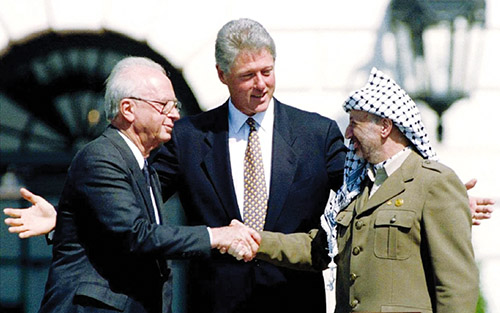
Arafat himself was the miracle worker. No other Palestinian leader could have done it. With his policy of politics and compromise endorsed by the highest decision-making authority on the Palestinian side, Arafat was then at the height of his powers. He could have delivered the compromise necessary from his side for peace on terms that any rational government and people in Israel would have accepted with relief. The problem was that Arafat did not have a partner for peace on the Israeli side. The most successful terrorist leader of modern times, Menachem Begin, was in power in the Zionist state; and he was stuffing the occupied West Bank with settlers to make it impossible for any future Israeli government to withdraw for peace. And that was a manifestation of an underlying truth – Zionism is not interested in peace on any terms the vast majority of Palestinians and most other Arabs and Muslims everywhere could accept. (Arafat did eventually have a partner for peace on the Israeli side, Prime Minister Yitzhak Rabin, but he was assassinated by a zealous Zionist who knew exactly what he was doing – killing the peace process).
Why does the truth of history matter?
The political reality to be faced can be summarised as follows. The governments of the major powers are never going to use the leverage they have to call and hold Zionism to account for its crimes unless and until they are pushed to do so by informed public opinion – by demonstrations of real democracy in action. The problem throughout the mainly Gentile Judeo-Christian or Western world is that citizens, the voters (most of them), are too uninformed to do the pushing because they’ve been conditioned by the corporate-controlled mainstream media to believe a version of history that is simply not true. It follows, or so it seems to me, that if the countdown to catastrophe for all is to be stopped, the name of the game must be empowering the citizens of nations to make democracy work for justice and peace in the Middle East. That’s why I devoted more than five years of my life to researching and writing Zionism: The Real Enemy of the Jews.
The above article originally appeared in New Dawn 113 (Mar-Apr 2009). Alan Hart passed away at the age of 75 in 2018, but you can still obtain his valuable and powerful books, Zionism: The Real Enemy of the Jews (Volumes 1, 2 & 3), from claritypress.com/book-author/alan-hart.
© New Dawn Magazine and the respective author.
For our reproduction notice, click here.



